It took 24 years for one of the all-time best Chinese language RPGs to get an English translation, but not the one it deserves
Shame the "English" in Xuan-Yuan Sword 3: Mists Beyond the Mountains makes Google Translate look like a pro.
Septem's a lone knight with a big problem: Venice's thuggish zealots think he's an evil heretic, and his new bff, Nicole—an amusingly/terrifyingly naive servant of Satan who doesn't see the problem with killing anyone and everyone who tries to pick a fight with them—kinda makes it hard to argue he isn't the devil's number one fan. It's far from the first game to brand me as an enemy of the state, but I'm struggling to think of one that pits me against the heavens themselves before I've left the first town.
Most RPGs can only dream of having an opening as attention-grabbing as that, or claim to take their hero on a journey that spans half as many fantasy-themed reimaginings of real-world cultures as Xuan-Yuan Sword: Mists Beyond the Mountains eventually does.
But this particular re-release of Softstar's 1999 RPG does something even more special than that: it makes a previously inaccessible piece of gaming history available for English-speaking gamers for the very first time. Xuan-Yuan Sword has long been a central pillar of Chinese language gaming, from its beginnings on floppy disks right through to the impressive action RPGs of the 2020s. Yet even in a series as highly regarded as this Mists Beyond the Mountains gets extra love, in much the same way that we might fondly think of Final Fantasy 6 as a standout retro moment in Squaresoft's history. It's that special, a game that altered forever what I thought a list of essential RPGs should contain—and where they could come from.
So it's a shame this modern PC port is closer in spirit to the delisted and hideous Final Fantasy 6 "HD" than the excellent Pixel Remaster, leaving us with a game that is neither an accurate representation of the original Xuan-Yuan Sword nor a thorough upgrade.
Whatever language you choose to play in, this new release is based on the existing (and untranslated) mobile remaster—the conspicuously thumb-sized icons in battle instead of the original's text menu give it away. I'm sure this approach is practical (and cost-efficient) for the developer, but paying good money for a PC port of a mobile port of a PC game feels a bit like being asked to enjoy half-chewed food.
I wish that was the worst thing I could say about it, but it turns out that's just where the ugliness starts. Like many RPGs it's the story that ultimately makes Mists Beyond the Mountains worthwhile, and yet—again, as also happened with Softstar's English mangling of Sword and Fairy 7—the translation created for this epic tale can only be described as appalling.
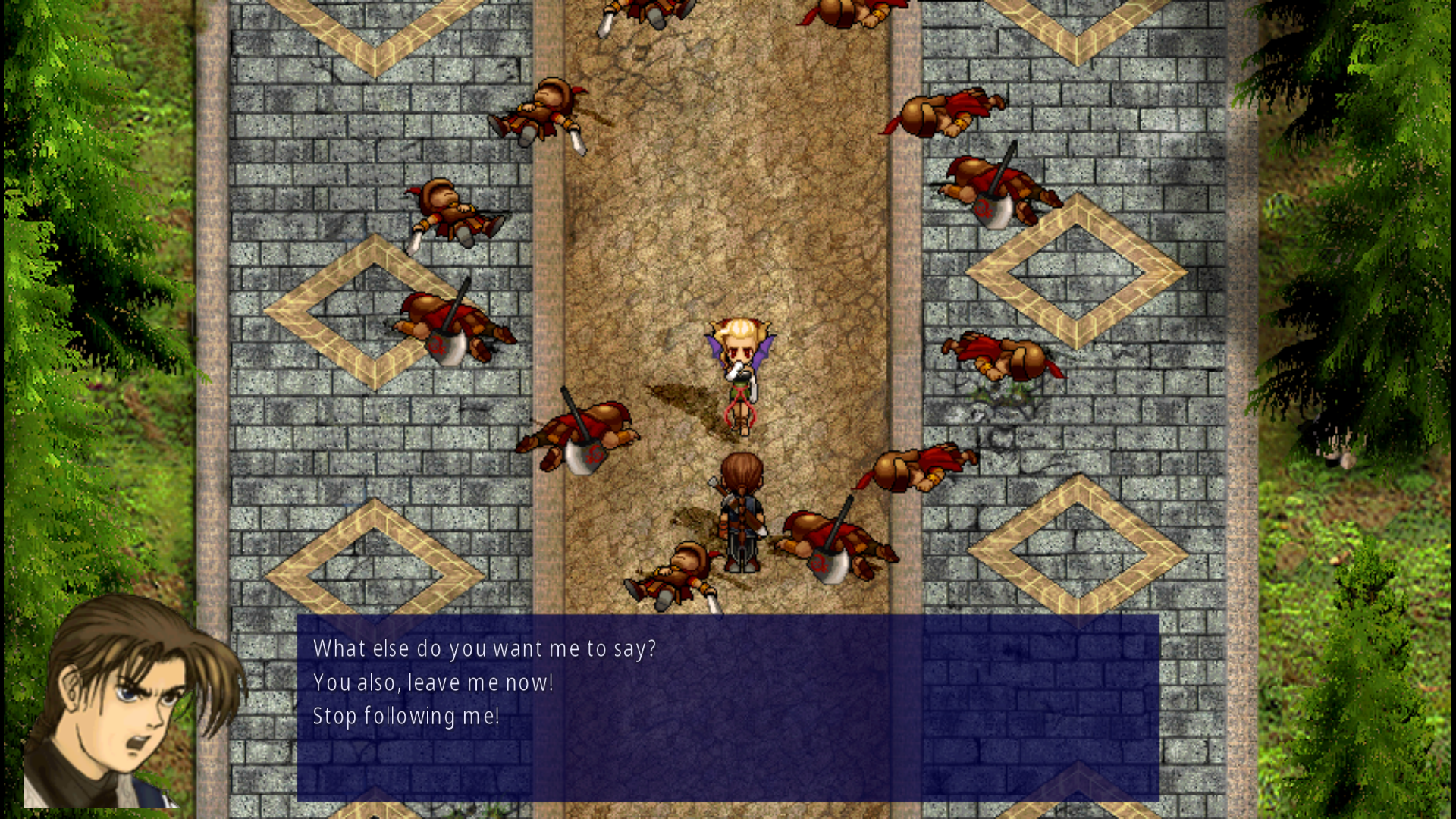
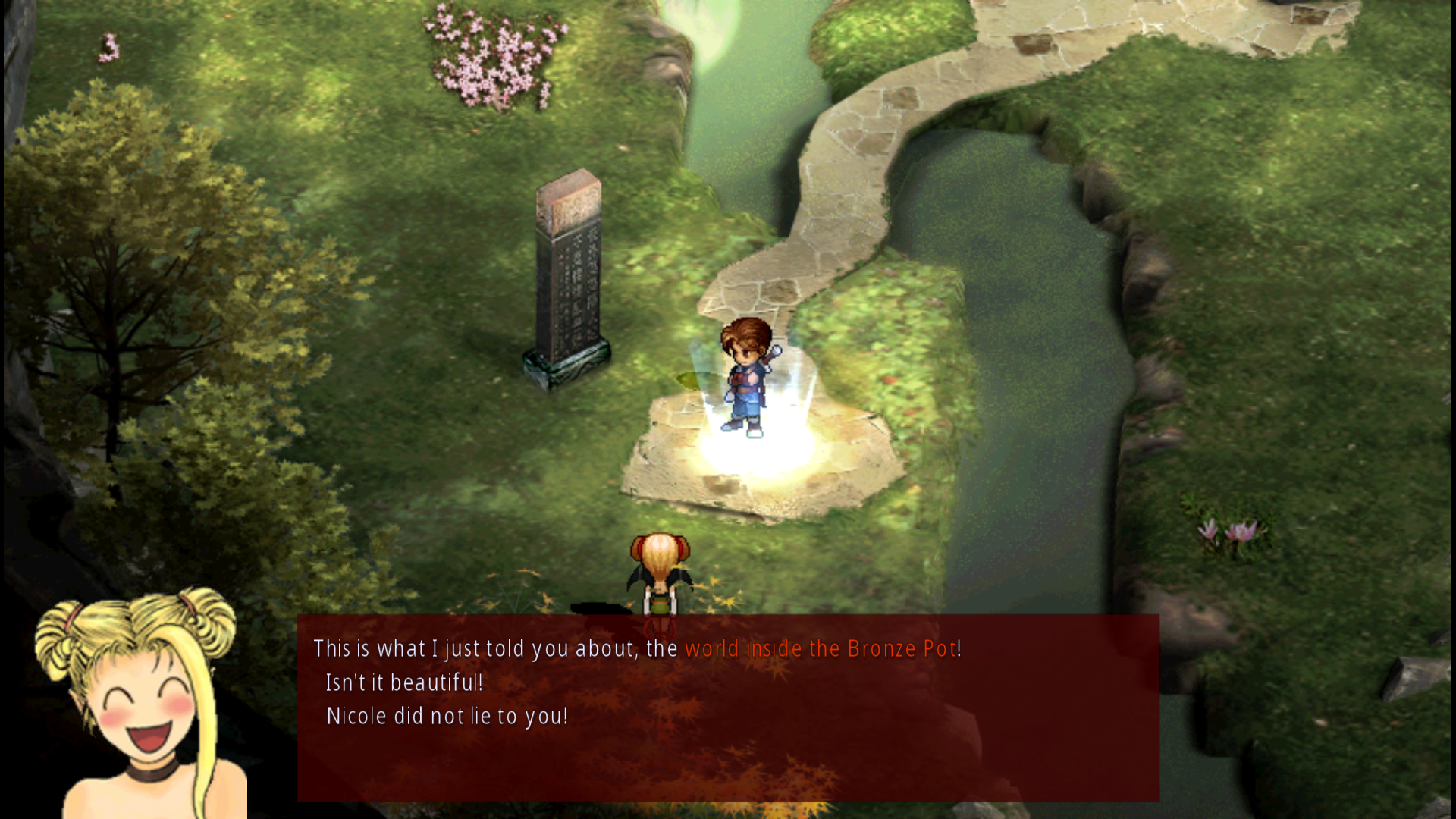
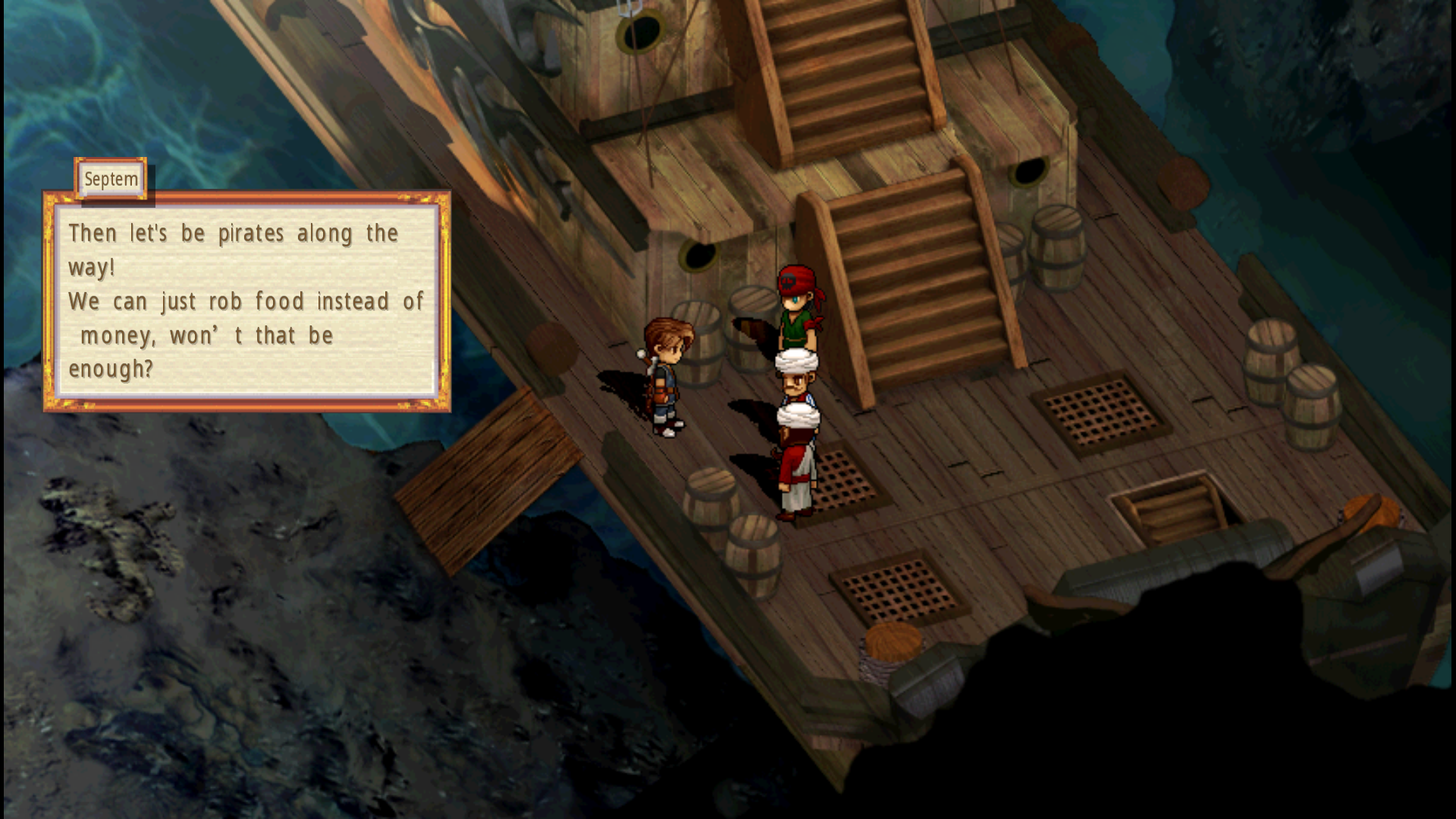
It's all technically correct, just littered with phrases no human would ever say. Like, and I quote: "to be executed by fire sentence in public"
The biggest gaming news, reviews and hardware deals
Keep up to date with the most important stories and the best deals, as picked by the PC Gamer team.
C'mon—"burnt at the stake" is right there.
One achievement's description reads "The resolution of 1 Specie in Creature Catalogue reaches 100." I honestly don't know what that means, even though I've apparently done it.
These issues run so deep the incongruously high resolution English font frequently contains the sort of basic presentation issues most of us thought we'd left behind decades ago. Almost every sentence is peppered with seemingly
random new line
s and/or,
uneven text justification
And that's when it remembers to stay within the dialogue box in the first place.
I would have really liked the editor to pick either ellipses"..." or interpuncts "···" and then stick with one of them, instead of switching back and forth several times in the same sentence. A story that thrives on heightened depictions of real-world cultures and religions needed to be treated with more care. The game opens with xenophobic Christians trying to burn foreigners alive and a huge dollop of rival nobles pulling political strings in the background—this is not the time or place for a hero that says "Dude". This game deserves better. Heck, any game deserves better.
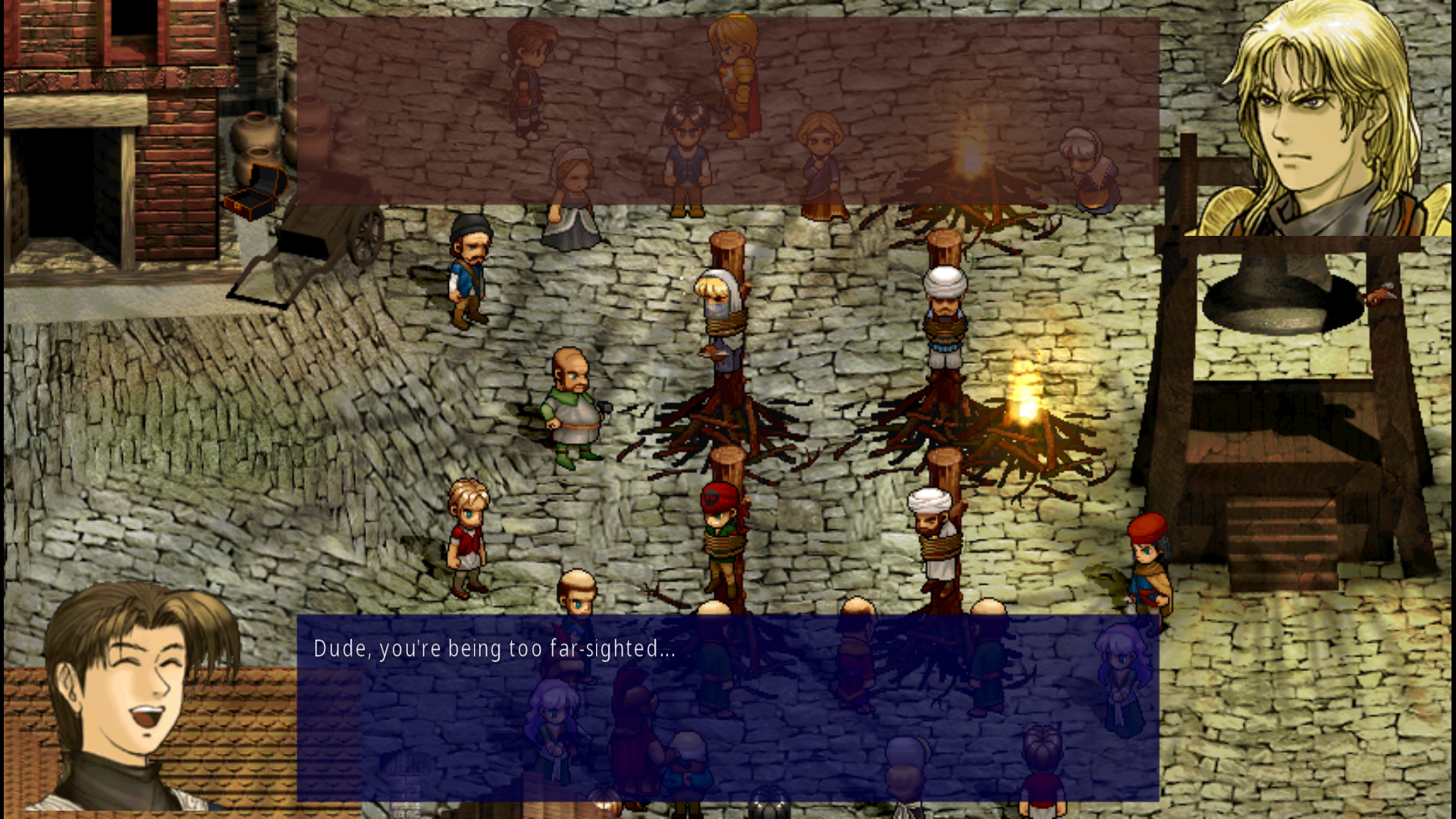
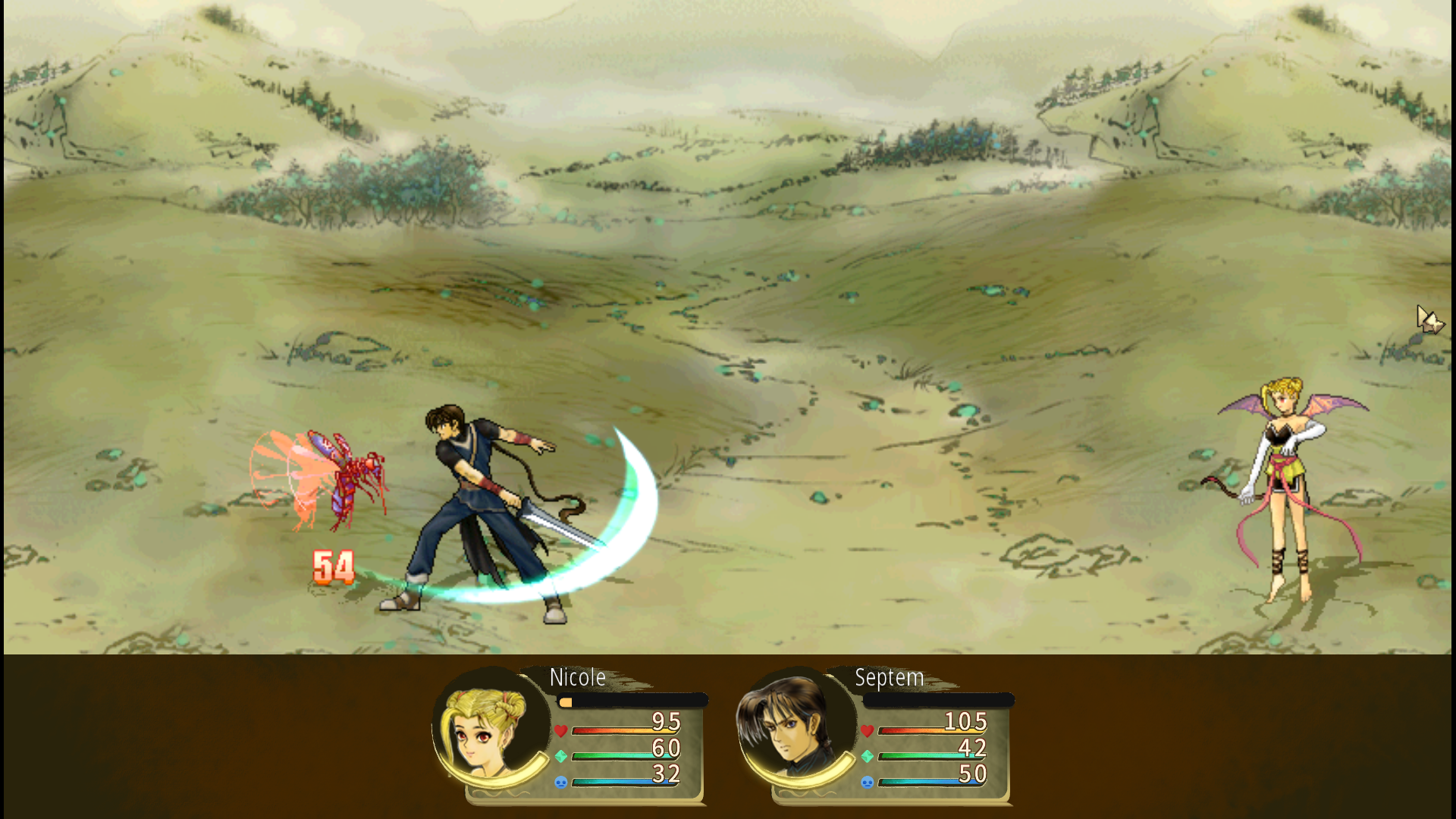
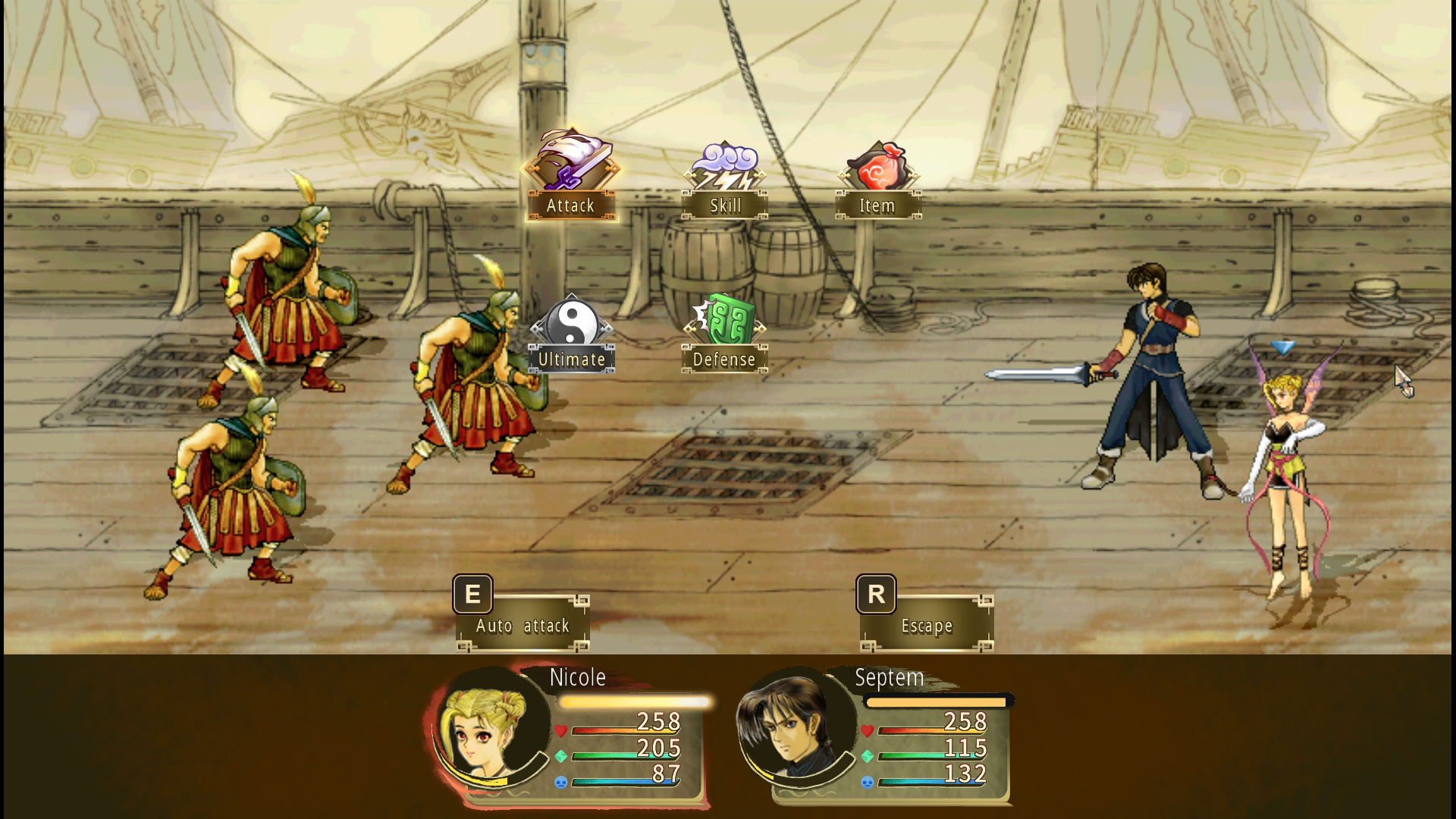
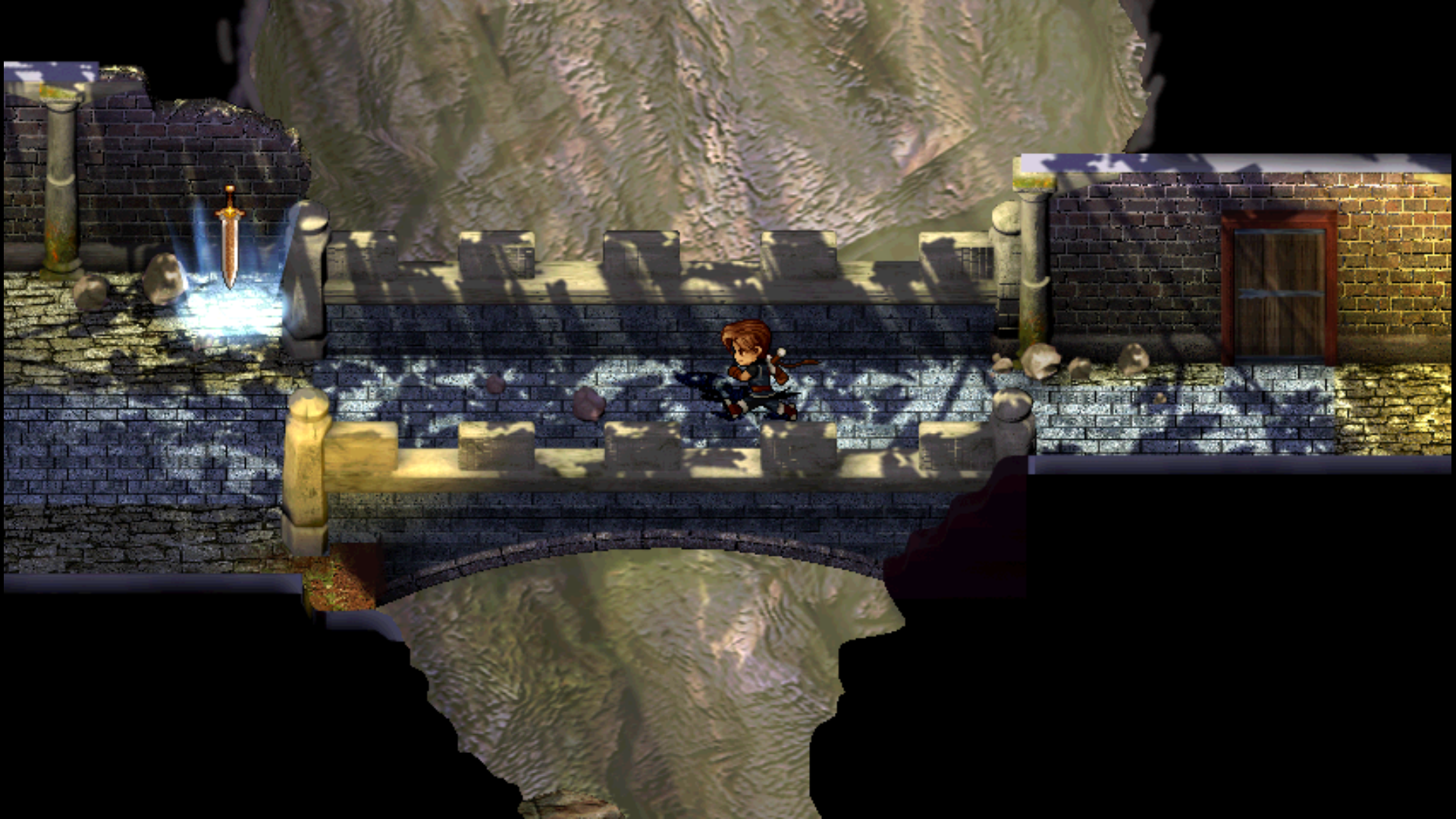
The good news is powering through these unforced errors is much easier than it would have been in the original Chinese version from 1999, which I've owned and loved for years. This new port of Mists Beyond the Mountains has been rebalanced with the impatient in mind. Combat is generally much easier, Septem starts with a lot more money, and it's now possible to put the game down anywhere you like thanks to a free save. The old dungeon save points have been turned into free full restore stations. On the surface these sound like helpful adjustments for the modern era, but in truth they and a number of other seemingly small alterations strip the game of much of its interactive joy. Combat is now mostly brainlessly autobattled through, and there's no longer any real reward for exploring a dungeon: what good is a new sword or another healing item when I can already easily kill everything in sight?
Why bother experimenting with the game's Shin Megami Tensei-ish monster capturing/fusing/equipping mechanic when I can blow almost everything away in a single hit?
The graphics used during these now-forgettable encounters and dungeon crawls are messy. The field of view has been expanded to fill modern widescreen displays, and that means battle scenes have had their art shifted around slightly and then tiled horizontally to compensate. Some key events show an empty void on either side because they were built with 4:3 monitors in mind. There's now a persistent fuzz on the impressively animated pixel art, and some special effects are not as smooth as they originally were: a waterfall now has obvious sharp tiled edges to its animated foamy end, whereas the original game—released 24 years ago—looked seamless in its natural environment.
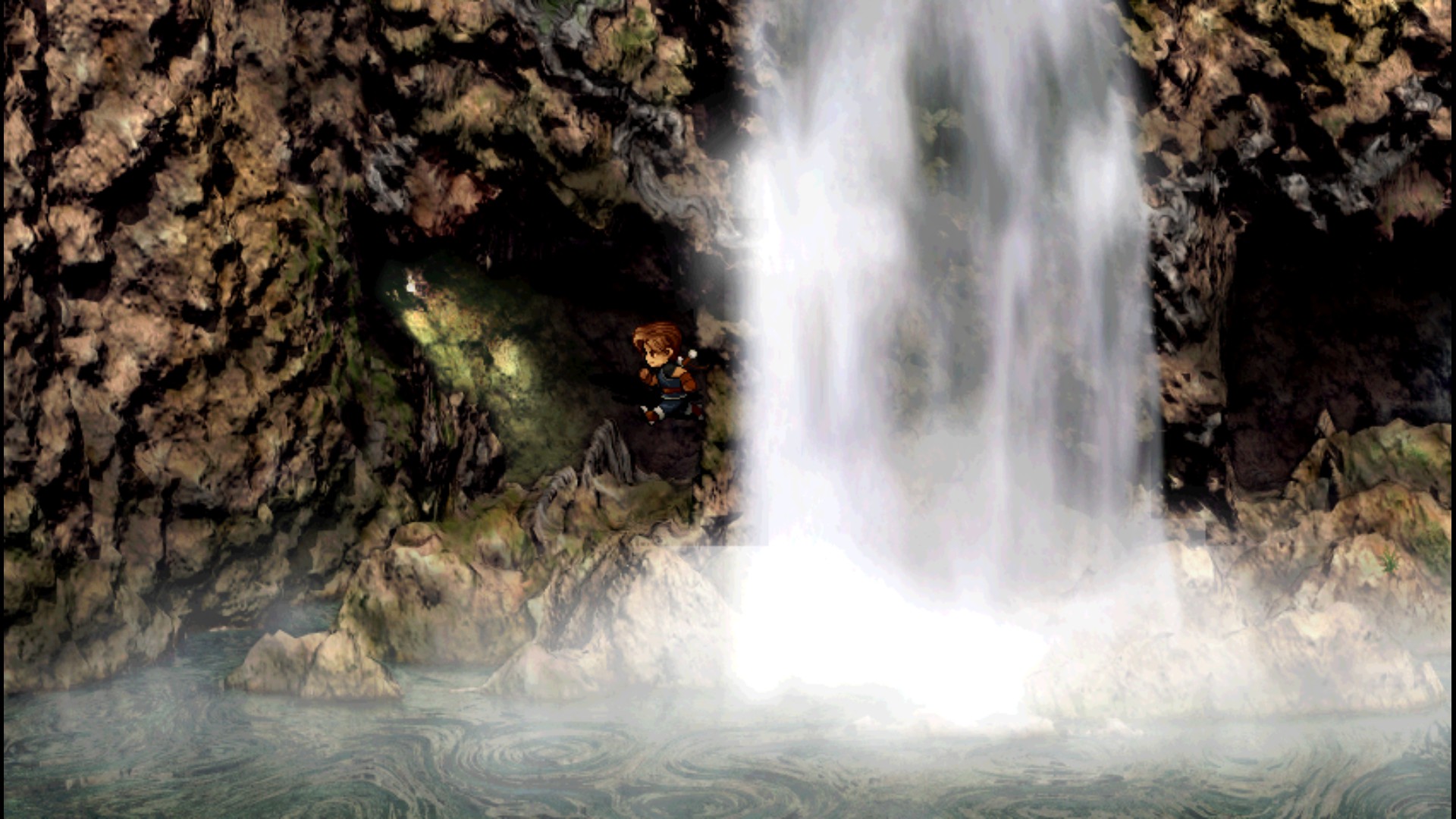
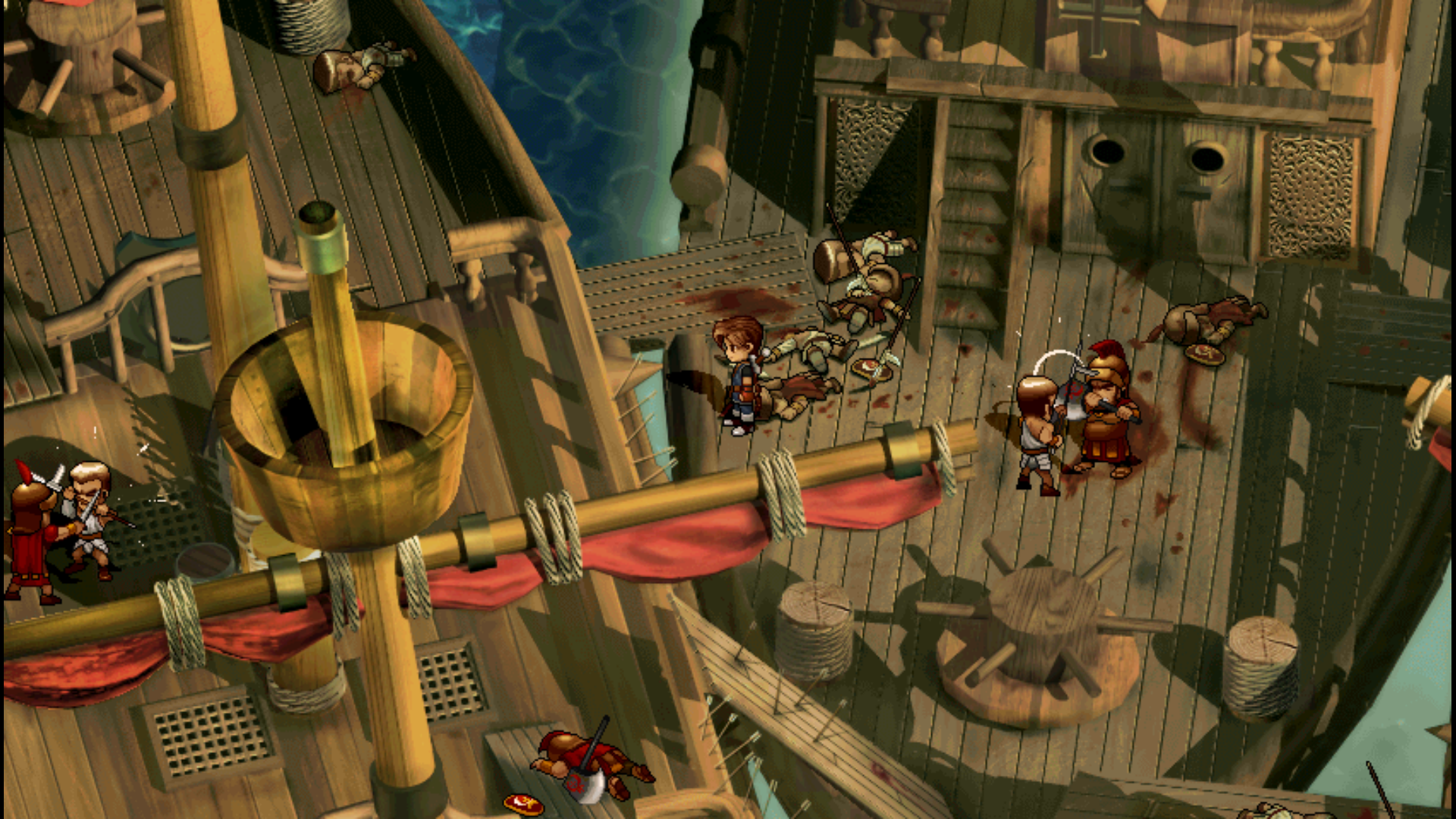
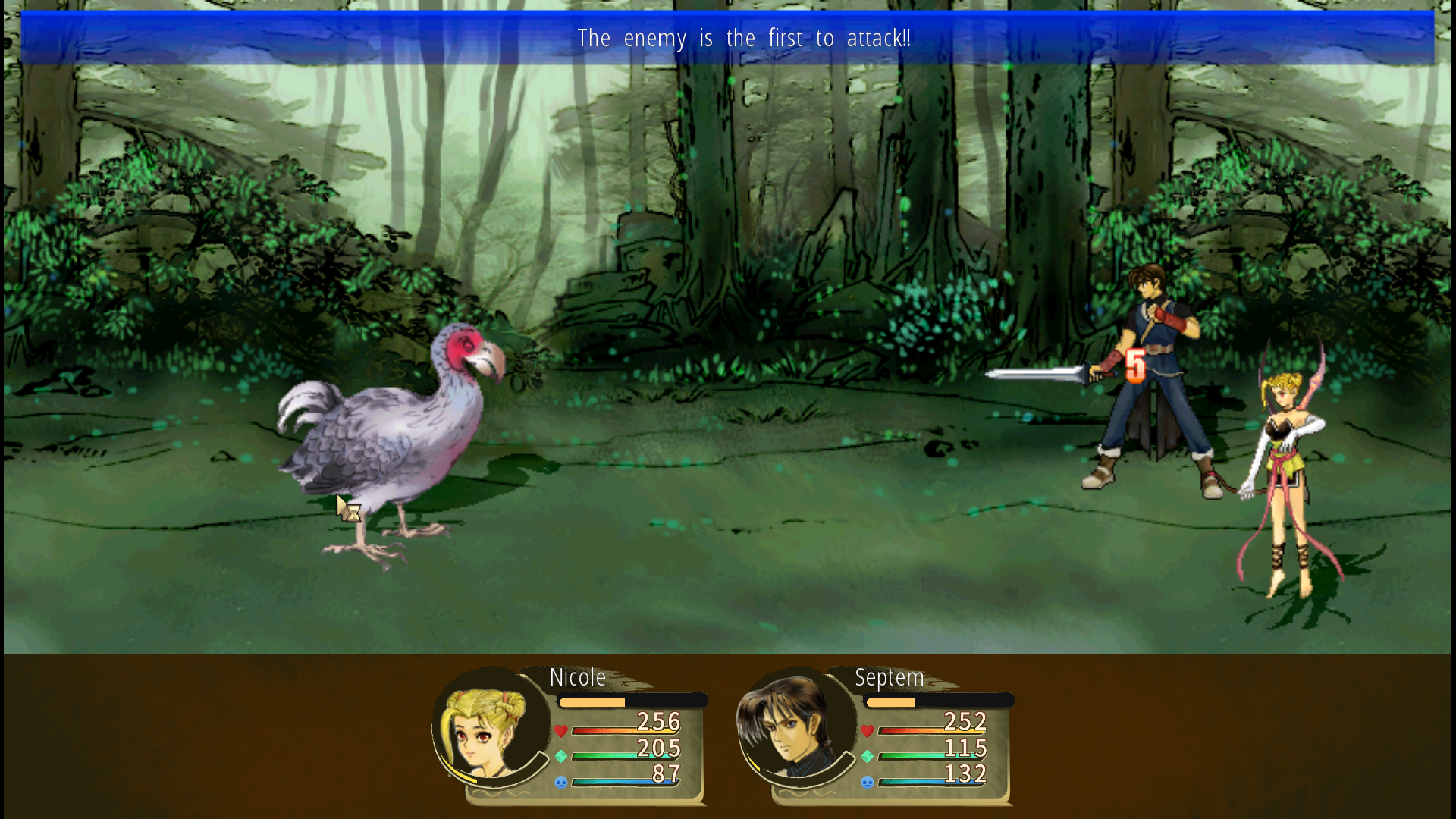
Elsewhere the switch between a poorly-upscaled cutscene and the game itself may leave the action running in a smaller part of the screen, and only fix itself when the characters move to a new area. There's always something that spoils a beautiful feature or good idea that was perfectly fine the first time around.
The Xuan-Yuan Sword series, like so many other Chinese language RPGs, more than deserve a seat—no, a throne—at the table of our collective gaming consciousness. They are finely crafted experiences good enough to hold their own against anyone's favourite Japanese RPGs, filled with characters fans still love seeing in TV adaptations or buying in expensive statue form in Taiwan and China. So it breaks my heart to see this game treated so badly, knowing that this is going to be the first and probably the last impression many English speaking people have of the game. It's like hearing a friend has finally got around to watching Star Wars, only to realise they've seen the non-widescreen special editions. On VHS.
In Chinese this is at best a convenient, although mediocre, modern re-release. In English this is a golden opportunity utterly squandered.

When baby Kerry was brought home from the hospital her hand was placed on the space bar of the family Atari 400, a small act of parental nerdery that has snowballed into a lifelong passion for gaming and the sort of freelance job her school careers advisor told her she couldn't do. She's now PC Gamer's word game expert, taking on the daily Wordle puzzle to give readers a hint each and every day. Her Wordle streak is truly mighty.
Somehow Kerry managed to get away with writing regular features on old Japanese PC games, telling today's PC gamers about some of the most fascinating and influential games of the '80s and '90s.

